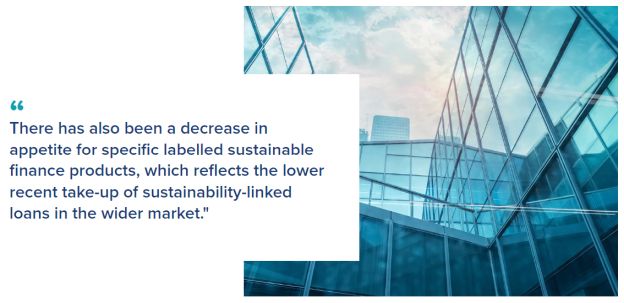The impact of higher interest rates than we've seen for 15 years, as well as geopolitical factors has led to fewer transactions and intense competition for those acquisitions. While the market expectation is that interest rates will decrease in 2024, and M&A volumes increase, it is not clear when that will happen. Meanwhile, intense competition between bidders has led to a sharp focus on certainty of funding to ensure that the bid is as robust as possible.
Higher interest rates, and the increased cost of debt, will have an impact on corporates' financing considerations and may constrain the amount of debt that they are willing to take on. While cashflow concerns are much less of an issue than they would be in the leveraged finance space, and corporates will not generally be concerned about their ability to pay the increased coupon, they may be reluctant to burden themselves with higher coupon debt, given other market uncertainties and a lack of clarity as to when interest rates are likely to decrease. Moreover, corporates with financial covenants may be loath to take up too much headroom by increasing leverage.

There has also been a decrease in appetite for specific labelled sustainable finance products, which reflects the lower recent take-up of sustainability-linked loans in the wider market. An additional factor in an acquisition context is likely to be the pressure of agreeing documents in a compressed timetable: there would typically be little time to focus adequately on agreeing stretching and ambitious sustainability performance targets and reporting and verification regimes. Additionally, there may be limited visibility on the target's sustainability strategy, and how this is likely to be integrated into the wider sustainability strategy of the enlarged group. These are crucial considerations when lenders and corporates are setting targets and carrying out due diligence for sustainable finance products.
One way in which parties are navigating the increased cost of financing is for sellers to roll over part of their stake into equity in the buyer. Although this means that a seller is not achieving a full cash exit, which may not be strategically attractive, this approach has allowed sellers to realise substantial amounts of cash while maintaining ongoing economic exposure to the business, allowing them to benefit from the upside of strategically successful transactions and mitigate the impact of what many sellers see as depressed valuations. For the buyer, these transactions reduce their cash requirement and therefore their financing costs, and allow them to share some of the risks of the target business with the seller.
To view the full article, click here.
The content of this article is intended to provide a general guide to the subject matter. Specialist advice should be sought about your specific circumstances.




